Accept No Substitutes
You alone are God. (Psalm 86:10)
Are you OK with that statement? Is the God of David the only god? Well, what does God Himself say about Himself? Isaiah was present to record some of His comments:
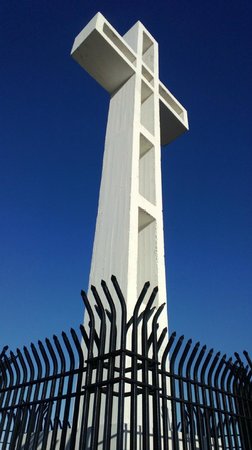
“But you are my witnesses, O Israel!” says the Lord. “You are my servant. You have been chosen to know me, believe in me, and understand that I alone am God. There is no other God— there never has been, and there never will be.” (Isaiah 43:10) Note that God had made this known to His People; not only Israel, but the Church.
All honor and glory to God forever and ever! He is the eternal King, the unseen one who never dies; he alone is God. Amen. (1 Timothy 1:17)
All glory to him who alone is God, our Savior through Jesus Christ our Lord. All glory, majesty, power, and authority are his before all time, and in the present, and beyond all time! Amen. (Jude 25)
Back to Isaiah:
I am the Lord; there is no other God. I have equipped you for battle, though you don’t even know me, so all the world from east to west will know there is no other God. I am the Lord, and there is no other. I create the light and make the darkness. I send good times and bad times. I, the Lord, am the one who does these things. “Open up, O heavens, and pour out your righteousness. Let the earth open wide so salvation and righteousness can sprout up together. I, the Lord, created them. (Isaiah 45:5-8)
“Do not forget this! Keep it in mind! Remember this, you guilty ones. Remember the things I have done in the past. For I alone am God! I am God, and there is none like me. Only I can tell you the future before it even happens. Everything I plan will come to pass, for I do whatever I wish.” (Isa 46:8-10)
The LORD is not leaving us much wiggle room here. And He even speaks of those who whine and complain about it:
“What sorrow awaits those who argue with their Creator. Does a clay pot argue with its maker? Does the clay dispute with the one who shapes it, saying, ‘Stop, you’re doing it wrong!’ Does the pot exclaim, ‘How clumsy can you be?’ How terrible it would be if a newborn baby said to its father, ‘Why was I born?’ or if it said to its mother, ‘Why did you make me this way?’” (Isaiah 45:9, 10)
But it’s not just a matter of whining and complaining. No, we take the matter of god into our own hands and rather than acknowledge we are made in His image, we make gods in our image.
Their idols are merely things of silver and gold, shaped by human hands. They have mouths but cannot speak, and eyes but cannot see. They have ears but cannot hear, and noses but cannot smell. They have hands but cannot feel, and feet but cannot walk, and throats but cannot make a sound. And those who make idols are just like them, as are all who trust in them. (Psalm 115:4-8)
How sad that we, who were created in the image of the Living God, would choose to embrace the image of things that are dead.
Let’s go back to Psalm 86 and see why David is able to say: “You alone are God.”
Protect me, for I am devoted to you. Save me, for I serve you and trust you. You are my God. Be merciful to me, O Lord, for I am calling on you constantly. Give me happiness, O Lord, for I give myself to you. (vs. 2-4) Why can David ask the LORD to Protect, save, be merciful, and give him happiness? Because…
O Lord, you are so good, so ready to forgive, so full of unfailing love for all who ask for your help. (vs. 5) And…
But you, O Lord, are a God of compassion and mercy, slow to get angry and filled with unfailing love and faithfulness. (vs. 15)
David also contrasts the One True God with the gods of the pagans, and puts it into a global context: No pagan god is like you, O Lord. None can do what you do! All the nations you made will come and bow before you, Lord; they will praise your holy name. (vs. 8-9)
Paul echoes a similar reality: Therefore, God elevated him to the place of highest honor and gave him the name above all other names, that at the name of Jesus every knee should bow, in heaven and on earth and under the earth, and every tongue declare that Jesus Christ is Lord, to the glory of God the Father. (Philippians 2:9-11)
All nations, all peoples will bow and declare that Jesus Christ is Lord. Some will do so out of love; others because they are constrained to do so. Will you acknowledge the One who alone as God? The One who protects you, saves you, is merciful to you and gives you happiness. I hope so.

 So here we are walking to worship, and it’s probably a good time and place to give up your pride and turn away from your arrogance. God’s not particularly fond of either of those attributes:
So here we are walking to worship, and it’s probably a good time and place to give up your pride and turn away from your arrogance. God’s not particularly fond of either of those attributes: loving and worshipful relationship with Him, with all that against you? Pride exalts us beyond our place. Pride replaces God, or at best ignores Him. Pride completely re-writes our priorities. Pride makes us stupid. And the damage? Well that’s what the Psalms and Proverbs are talking about.
loving and worshipful relationship with Him, with all that against you? Pride exalts us beyond our place. Pride replaces God, or at best ignores Him. Pride completely re-writes our priorities. Pride makes us stupid. And the damage? Well that’s what the Psalms and Proverbs are talking about.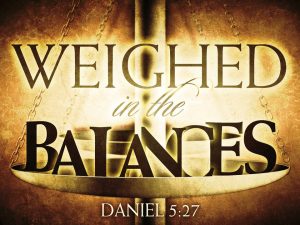 within the context of another verse from the Psalms: For troubles surround me— too many to count! My sins pile up so high I can’t see my way out. They outnumber the hairs on my head. I have lost all courage. (Psalm 40:12) Yeah. There are days like that, when my sins pile up so high around me I can’t see my way out.
within the context of another verse from the Psalms: For troubles surround me— too many to count! My sins pile up so high I can’t see my way out. They outnumber the hairs on my head. I have lost all courage. (Psalm 40:12) Yeah. There are days like that, when my sins pile up so high around me I can’t see my way out. Now he good news is that Paul does not leave us waiting. The answer comes immediately in verse 25: Thank God! The answer is in Jesus Christ our Lord. So you see how it is: In my mind I really want to obey God’s law, but because of my sinful nature I am a slave to sin. So now there is no condemnation for those who belong to Christ Jesus. And because you belong to him, the power of the life-giving Spirit has freed you from the power of sin that leads to death. (Romans 7:25-8:2)
Now he good news is that Paul does not leave us waiting. The answer comes immediately in verse 25: Thank God! The answer is in Jesus Christ our Lord. So you see how it is: In my mind I really want to obey God’s law, but because of my sinful nature I am a slave to sin. So now there is no condemnation for those who belong to Christ Jesus. And because you belong to him, the power of the life-giving Spirit has freed you from the power of sin that leads to death. (Romans 7:25-8:2) I suppose I inherited it from my mother—she loved to walk. Now I’m not sure I love to walk, but I do need to walk, as I’m dealing with heart disease. So Monday, Wednesday, Friday, I go to the gym. Tuesday, Thursday, Saturday, Sunday, I walk.
I suppose I inherited it from my mother—she loved to walk. Now I’m not sure I love to walk, but I do need to walk, as I’m dealing with heart disease. So Monday, Wednesday, Friday, I go to the gym. Tuesday, Thursday, Saturday, Sunday, I walk.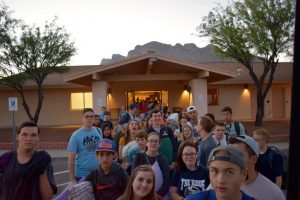 talking about Jesus, what He’s done for you, how He’s answered prayer, or how you need prayer. How you’re feeling lost, or how He’s been guiding you. There’s a whole myriad of topics and thoughts and hopes and needs that could be expressed in your coming and going to and from church. Or, maybe you’ll talk about the sermon, or the worship pastor (hopefully mostly good).
talking about Jesus, what He’s done for you, how He’s answered prayer, or how you need prayer. How you’re feeling lost, or how He’s been guiding you. There’s a whole myriad of topics and thoughts and hopes and needs that could be expressed in your coming and going to and from church. Or, maybe you’ll talk about the sermon, or the worship pastor (hopefully mostly good). If I live, it will be for Christ, and if I die, I will gain even more. I don’t know what to choose. I could keep on living and doing something useful. It is a hard choice to make. I want to die and be with Christ, because that would be much better. (Phil 1:21-23)
If I live, it will be for Christ, and if I die, I will gain even more. I don’t know what to choose. I could keep on living and doing something useful. It is a hard choice to make. I want to die and be with Christ, because that would be much better. (Phil 1:21-23)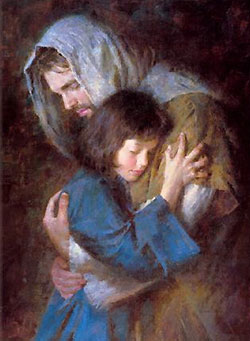 I believe this is the Old Testament precursor of a passage from Revelation:
I believe this is the Old Testament precursor of a passage from Revelation: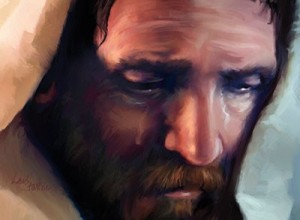
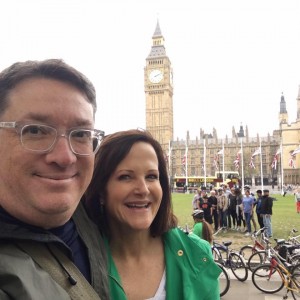 is that he was and is one of the Lord’s godly ones. And since his death is precious to God, I have no doubt that it grieved our Heavenly Father—or rather—our Heavenly Father grieves for Mark’s wife Lorri, and their families; because Mark is now with Him, probably shooting videos—and the resolution is out of this world.
is that he was and is one of the Lord’s godly ones. And since his death is precious to God, I have no doubt that it grieved our Heavenly Father—or rather—our Heavenly Father grieves for Mark’s wife Lorri, and their families; because Mark is now with Him, probably shooting videos—and the resolution is out of this world. Years ago, I heard a preacher—I don’t know if it was live or on the radio— who talked about the choices we make and the paths we take. So there you are, walking along with God, side by side, fellowshipping with Him, following Him, just being WITH Him. And then you decide to take a right turn, and go off in your direction. Now this is not without biblical precedence.
Years ago, I heard a preacher—I don’t know if it was live or on the radio— who talked about the choices we make and the paths we take. So there you are, walking along with God, side by side, fellowshipping with Him, following Him, just being WITH Him. And then you decide to take a right turn, and go off in your direction. Now this is not without biblical precedence.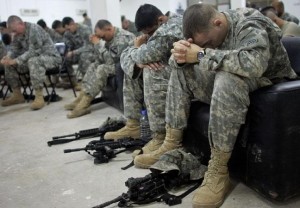 So, the earth melted, and God brought desolation and destruction upon the earth. To what end? And why so extreme? Well, the answer to that is found in the second half of the above verse. The end of the verse reads: Know that I am God. Whether the earth is melting and being made desolate, or whether your life is melting and you’re feeling desolate, now is the time for you to cease striving and know that He is God.
So, the earth melted, and God brought desolation and destruction upon the earth. To what end? And why so extreme? Well, the answer to that is found in the second half of the above verse. The end of the verse reads: Know that I am God. Whether the earth is melting and being made desolate, or whether your life is melting and you’re feeling desolate, now is the time for you to cease striving and know that He is God. us, and is our fortress, but we need to Be Still. Note the latter verse is occurs twice in the Psalm (vs, 7,11). In fact it is the last thing written. He is with you. Can you be still?
us, and is our fortress, but we need to Be Still. Note the latter verse is occurs twice in the Psalm (vs, 7,11). In fact it is the last thing written. He is with you. Can you be still?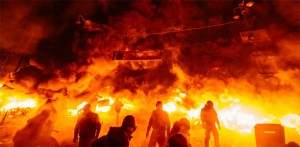 Last time, we discovered that the context of this verse places you squarely in the middle of a war. Maybe it’s for soldiers who are literally in the midst of a battle; or maybe it IS the end of the world as we know it; or it could be the spiritual battles that you’re in the midst of, which are seeking to overwhelm your soul and your heart. But Cease Striving does not merely call you to stop in the middle of a busy day; it calls you to stop whatever you’re doing, even in the midst of warfare.
Last time, we discovered that the context of this verse places you squarely in the middle of a war. Maybe it’s for soldiers who are literally in the midst of a battle; or maybe it IS the end of the world as we know it; or it could be the spiritual battles that you’re in the midst of, which are seeking to overwhelm your soul and your heart. But Cease Striving does not merely call you to stop in the middle of a busy day; it calls you to stop whatever you’re doing, even in the midst of warfare.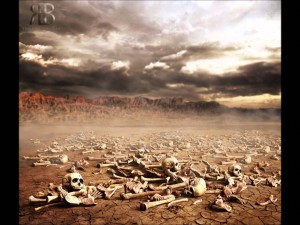 The next thing that God brought was desolations in the earth. Now this word can also be translated as destruction, horror, and waste. Pretty intense. And why does he do this? To end the wars.
The next thing that God brought was desolations in the earth. Now this word can also be translated as destruction, horror, and waste. Pretty intense. And why does he do this? To end the wars. This is my favorite Psalm. In fact it was the Psalm that launched this website (#2). And as is often the case, favorite verses can sometimes cause us to miss the context; and that’s what happened here. You see, whether you translate that Hebrew word raphah as be still, or cease striving, or fall limp, or fail, or drop—the list goes on—it spoke to me as an everyday, what’s going on in my life, kind of verse. But it’s not that only.
This is my favorite Psalm. In fact it was the Psalm that launched this website (#2). And as is often the case, favorite verses can sometimes cause us to miss the context; and that’s what happened here. You see, whether you translate that Hebrew word raphah as be still, or cease striving, or fall limp, or fail, or drop—the list goes on—it spoke to me as an everyday, what’s going on in my life, kind of verse. But it’s not that only.